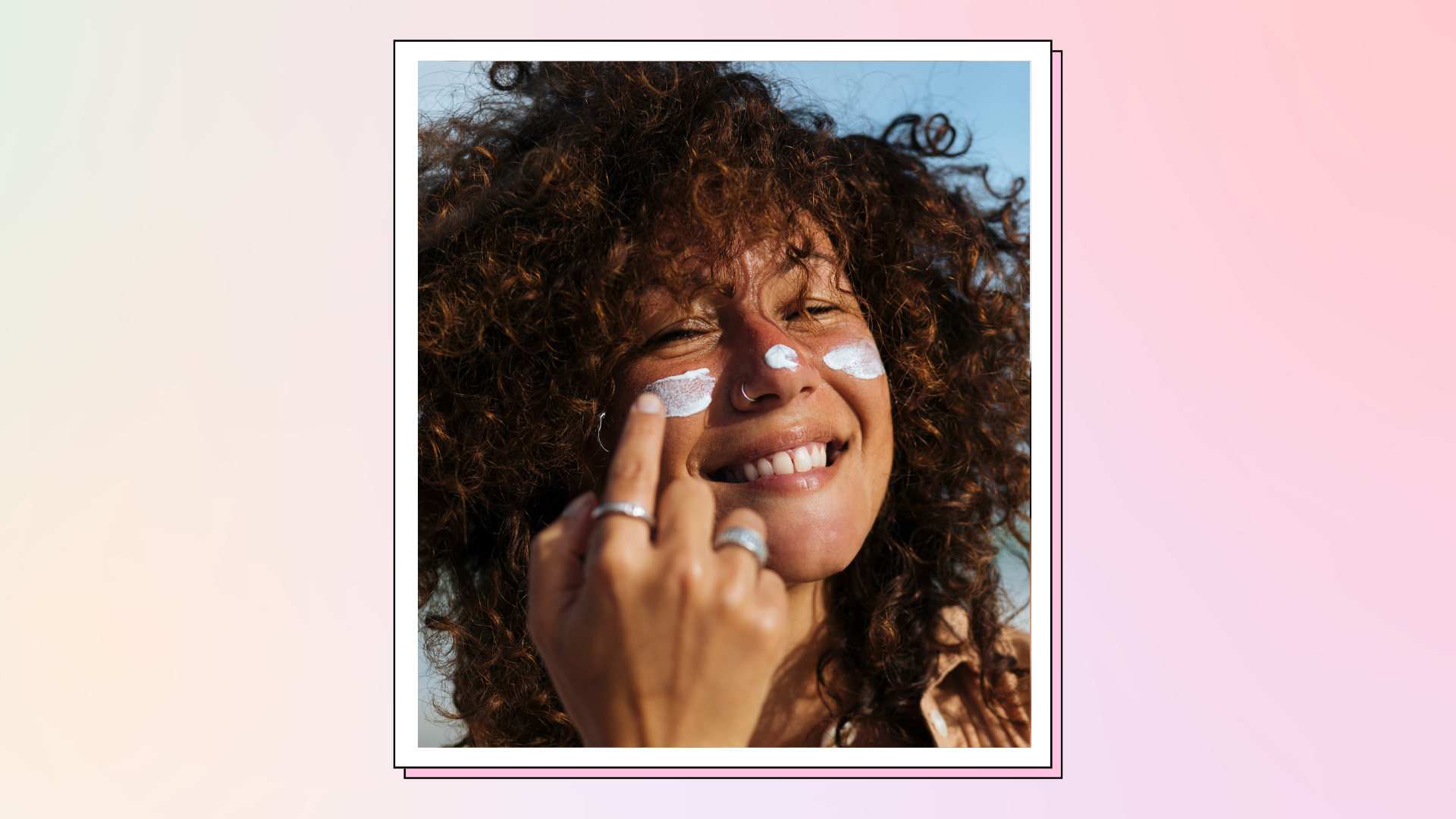Should you apply sunscreen or moisturizer first? Experts break it down
Dermatologists explain whether you should apply sunscreen or moisturizer first, and why it depends on the formulas involved


Applying sunscreen or moisturizer first is a question that, if you're doing skincare right, you may ponder on a daily basis—not just when you're lapping up the rays on holiday. However, it becomes even more important during summer when you want to ensure your complexion is as hydrated as it is protected.
No doubt you're already making the effort to apply one of the best sunscreens for face daily, but when layering in combination with moisturizer, the similar consistencies may prompt you to question if you're doing it right. To make sure you're getting the most out of both, we've asked experts to share the correct skincare product order for layering these two essential products.
Meet the experts on sunscreen and moisturizer
- Dr. Susan Chon is a professor and dermatologist at The University of Texas MD Anderson Cancer Center. She's explained the impact of applying sunscreen or moisturizer first.
- Dr. Brooke Jeffy is a board-certified dermatologist practicing in Phoenix, Arizona. She breaks down the difference between when you should apply moisturizer alongside chemical and mineral sunscreen.
Should you apply sunscreen or moisturizer first?
Much like the sunscreen vs sunblock debate, deciding whether to apply sunscreen or moisturizer first actually depends on what type of sunscreen you’re using.
When you’re putting on moisturizer and sunscreen, “whichever is applied first will be absorbed the best,” says Dr. Susan Chon, professor, and dermatologist at The University of Texas MD Anderson Cancer Center.
Since products like Origins GinZing Moisturizer are designed to help your skin lock in its hydration, it makes sense that you’d want that to soak into your skin more deeply. But you want your sunscreen to absorb just as effectively, right?
Not necessarily. There are two different types of sunscreen, and the order in which you apply them does matter. One type is a chemical sunscreen, which works best when it soaks into your skin. The other is physical or mineral sunscreen (also called sunblock), which works best when it sits on the surface of the skin. Once you know the difference, deciding whether to apply sunscreen or moisturizer first is actually pretty simple.
How to apply moisturizer and sunscreen in the right order for each sunscreen type
Mineral sunscreen
If you’re using a mineral-based sunscreen or sunblock, “You should always apply your moisturizer first, then your sunscreen,” says Dr. Chon. This way “the benefits of your moisturizer, like the antioxidants, will [absorb] well. Then apply your mineral-based sunscreen, which is not absorbed, on top."
When physical sunscreen goes on last, it can work its magic without any interference. This type of product contains minerals like zinc and titanium dioxide that deflect harmful UV rays before they reach your skin. If you’ve heard the old adage about keeping sunscreen “closest to the sun,” this is the right idea if you’re using mineral sunscreen.
“Physical sunscreens can be applied on top of moisturizers because they act as more of a shield and do not need to be absorbed into the skin to work,” explains Dr. Brooke Jeffy, a board-certified dermatologist practicing in Phoenix, Arizona.
Chemical sunscreen
Chemical sunscreens, like Kiehl's Ultra Light Daily UV Defense Aqua Gel SPF 50, tend to be more effective when they really have a chance to soak into your skin.
As the American Academy of Dermatology Association (AAD) explains, active ingredients such as avobenzone, homosalate, oxybenzone, octinoxate, octisalate, and octocrylene work by absorbing UV rays, converting that energy into heat, and releasing it before it can penetrate your skin.
So, if this is your preferred type of sunscreen you’ll want to reach for it first. “Chemical sunscreens should be applied first, with moisturizer on top, because they need to be absorbed by the skin to work,” says Dr. Jeffy.
Sunscreen application tips to follow
How often should you use sunscreen?
While it's generally sunnier in the summer months, the most important thing to remember is to wear sunscreen every single day, even if the sun isn't obviously shining or you'll be spending most of your time inside—UV rays can get through clouds and glass. Not only will it protect your skin from burning when it's very sunny, you'll also be staving off the visible signs of skin aging, 80% of which is caused by the sun's rays.
Is there anytime you don't need to apply sunscreen?
Even if you’re just sitting at your desk all day? Even if you’re popping out for errands in the car and running straight indoors? Even if it’s snowing outside your window? Yes, yes, and yes.
Up to 80% of damaging UV rays can still penetrate your skin even when it’s overcast, according to the AAD—so get into the habit of applying sunscreen every day, regardless of the weather.
You might skip moisturizer from time to time, but to really keep your skin protected from the sun, you’ll need a different approach to applying SPF—even if you're worried about sunscreen preventing tanning (a myth, FYI).
Think of sunscreen as a face and body skincare superhero. Be sure to use a sufficient amount across any parts of your body that will be exposed to the sun. Or the shade! Or the clouds!
How often should you reapply sunscreen?
You might not reapply moisturizer until you reach for your night cream. But the SPF application shouldn’t stop after your morning routine.
The AAD recommends reapplying sunscreen every two hours if you’re outdoors—or more frequently if you’re sweating or swimming.
If you’re fresh-faced, without any other skincare products to get in the way, chemical sunscreen could do the trick while you’re on the go.
But, if reapplying means you’ll be putting on sunscreen on top of moisturizer (and a few layers of makeup), the product won’t have the chance to absorb deeply into your skin. If that’s the case, use a mineral-based sunscreen to create a protective shield that works as it’s designed to.
Does sunscreen ever expire?
Yes! Always be sure to check your sunscreen expiration date so that you're not using an ineffective product. As a general rule, you should use sunscreen up within 12 months of opening, though this will vary formula to formula, so always check the packaging.

Aleesha was Deputy Editor and Beauty & Fashion Editor for My Imperfect Life, where she headed up the beauty, fashion and eCommerce pages. Previously she was Shopping Writer at woman&home and gained an AOP awards nomination after working on their news team. She earned an MA in Magazine Journalism from City, University of London in 2017 and has since worked with a number of brands including, Women's Health, Stylist and Goodto. When she’s not testing all the new beauty & lifestyle products on the market, Aleesha spends her time soaking up the newest bestsellers and Netflix releases, watching everything Marvel, learning about different wines, attempting new languages and traveling as much as she can.